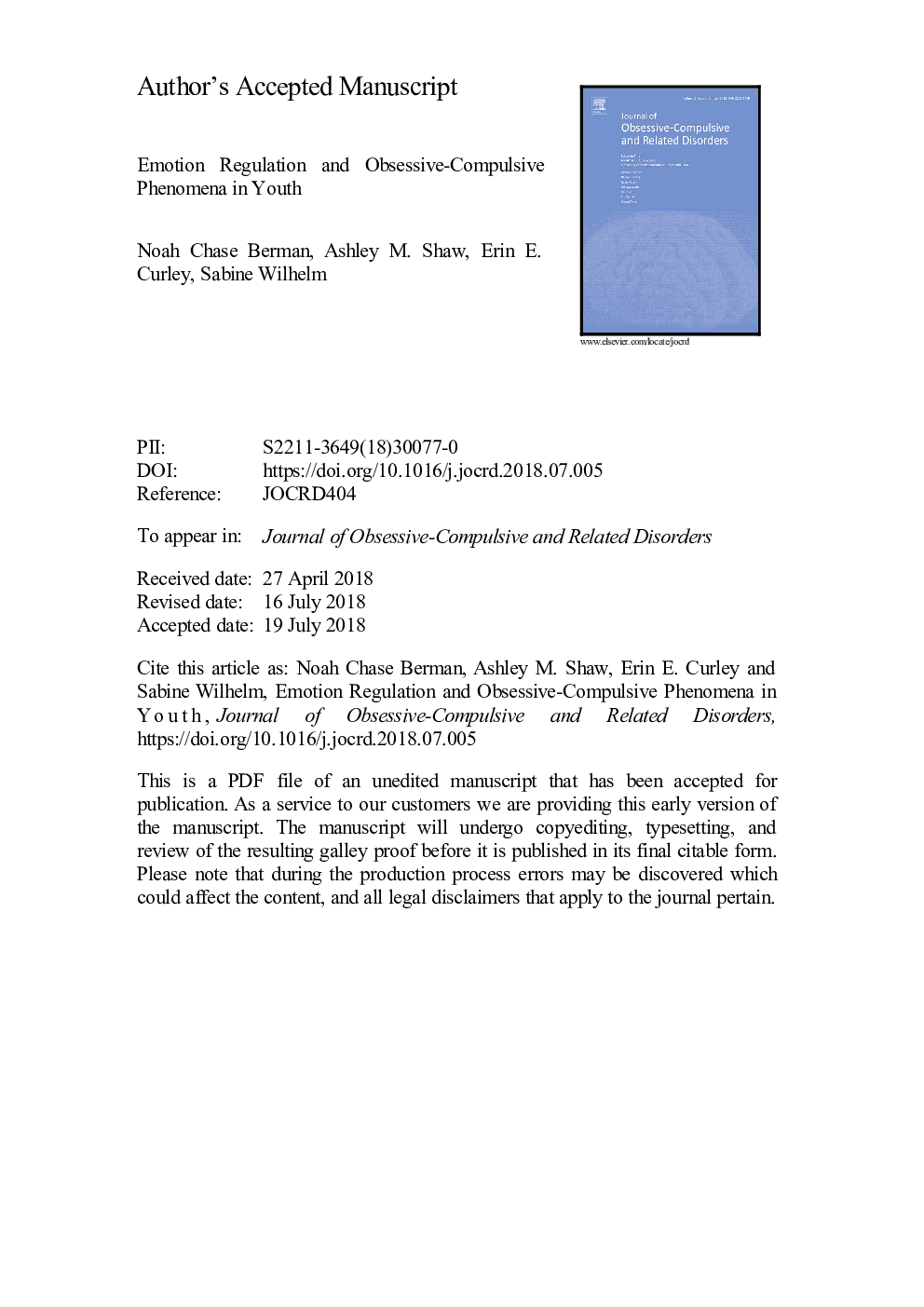| Article ID | Journal | Published Year | Pages | File Type |
|---|---|---|---|---|
| 7268910 | Journal of Obsessive-Compulsive and Related Disorders | 2018 | 23 Pages |
Abstract
There is a dearth of research evaluating the relationship between obsessive-compulsive (OC) phenomena and emotion regulation (ER) in youth. The current study bridges this gap by utilizing multiple informants to evaluate the relationship between ER processes (e.g., suppression) and OC features in 27 diagnostically-assessed youth. As predicted, after controlling for children's age and distress, obsessive beliefs (e.g., the importance of/need to control thoughts) and OCS dimensions (e.g., washing) possessed negative associations with adaptive skills (ER) and positive relationships with maladaptive processes (emotional lability). Notably, expressive suppression possessed the strongest relationship with obsessive beliefs and OCS domains, and mediated the relationship between these two constructs. Results are discussed in the context of experiential avoidance. Clinical recommendations and future directions are discussed.
Related Topics
Health Sciences
Medicine and Dentistry
Psychiatry and Mental Health
Authors
Noah Chase Berman, Ashley M. Shaw, Erin E. Curley, Sabine Wilhelm,
